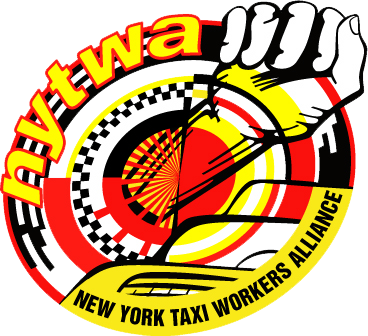NEW YORK LABOR AND COMMUNITY GROUPS RELEASE STATEMENT OPPOSING THE UBER & LYFT “RIGHT TO BARGAIN ACT” FOR GIG WORKERS
NEW YORK - Today, Tuesday, May 25, 2021, labor and community groups including the National Employment Law Project, the New York Taxi Workers Alliance, Make the Road New York, New York Communities for Change, the National Writers Union, and the New York Civil Liberties Union released the following statement opposing Uber & Lyft's "Right to Bargain Act":
We strongly oppose the so-called "Right to Bargain Act” for app-based drivers and delivery workers being pushed by Uber and Lyft in Albany. Under the guise of “collective bargaining,” the bill would sharply confine workers’ ability to build power. It also would permanently remove labor protections and benefits required by law, inflicting harm upon an already financially insecure workforce made up mostly of immigrants and people of color. Multinational app-based companies drafted this bill without the involvement of or input from the low-wage immigrant workforce whose lives and livelihoods it will impact.
The bill would reverse gains that workers have made at the city level and would block local municipalities from passing stronger workplace laws going forward. It would destroy the first-in-the-nation New York City minimum pay standard for app-based drivers. This bill would undermine the current efforts of Los Deliveristas Unidos (LDU) to fight for better working conditions at the NYC level, such as the right to use bathrooms, transparency from the apps, and better pay.
App drivers would no longer be compensated for wait time, which is more than a third of their work time. Because there would no longer be a regulatory limit on the number of drivers competing for passengers, driver pay is likely to fall below $10 an hour, far less than the statewide minimum wage of $15 an hour and less than the $17.47 an hour currently mandated for app-based drivers in New York City.
The bill also would undo recent victories by workers for Uber, Lyft, and Postmates that guarantee them access to regular state unemployment insurance. It would replace those hard-won rights with a watered-down version of unemployment benefits subject to the whims of billion-dollar gig companies, and under which workers would almost never qualify. That could mean taking millions of dollars of benefits out of the pockets of struggling workers—under the bill as written, none of the 68,000 app-based drivers who received state unemployment benefits during the pandemic would have qualified.
In fact, by exempting the ride-hail companies from responsibility for state unemployment insurance taxes accrued to date, this bill would force other New York employers to pick up the tab for over $500 million in state unemployment benefits already paid out.
Rather than providing real power to workers, this bill locks app-based workers out of employment protections and makes them bargain from zero.
This bill would set a dangerous precedent for the country. Make no mistake, if these companies win in New York State, they will try to replicate these carve-outs from labor law nationally, putting millions of workers at risk and undermining momentum for the PRO Act, a landmark federal bill that would strengthen organizing rights for all workers. Critically, the “Right to Bargain Act” would undermine efforts by workers, our organizations, and others to uphold labor and employment rights for all misclassified workers whose employers rob them of protections by calling them “gig workers” or “independent contractors.”
Signed,
National Employment Law Project | New York Taxi Workers Alliance | United Auto Workers Region 9A | Workers Center of Central NY | New York Civil Liberties Union | Food Chain Workers Alliance | A Better Balance I Make the Road New York | New York Communities for Change | Community Service Society of New York I National Writers Union | Freelance Solidarity Project | People’s Parity Project | Asian American Legal Defense and Education Fund (AALDEF) | Center for New York City Affairs at The New School | 9/11 Environmental Action | Mobilization for Justice | Towards Justice
